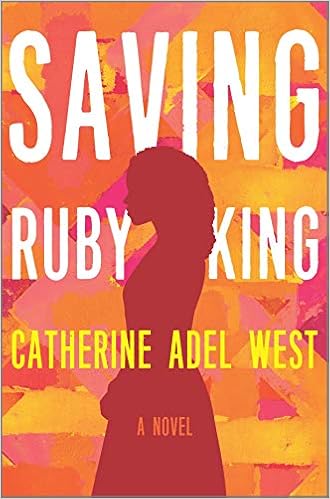Alice King is murdered, leaving her daughter Ruby to live with Lebanon, her violent father. Ruby’s best friend, Layla Potter, is determined to protect Ruby from Lebanon. Layla would like the help of her father Jackson, pastor of their church, but he always defends Lebanon whom he has known since childhood. Undeterred, Layla persists in her mission to save Ruby from herself and from Lebanon, but ends up discovering dangerous secrets which may tear apart her own family.
The novel is set in Chicago’s South Side in both the present and the
1960s. Besides the dual timelines, there
are multiple perspectives; Ruby, Layla, Lebanon, and Jackson are among the
first-person narrators. The most
interesting viewpoint is provided by Calvary Hope Christian Church which is
given a consciousness and a voice.
What most impressed me is the characterization. All characters are multi-dimensional with
complex histories. Lebanon, for example,
is definitely one of the bad guys, but once we learn about his upbringing, we
cannot but have some understanding and sympathy for him. There are also good characters whose actions
show them to be flawed. These
complicated, very human characters leave readers questioning how they would
behave if given the same background and placed in similar circumstances.
The book examines inter-generational trauma. The trauma suffered by Lebanon’s mother
affects her relationship with her son so his becoming a violent husband and
father is not surprising. Lebanon even
admits, “whatever haunts [my mother], haunts me.” He also believes that Ruby will be much like
him: “[Ruby] has that same look in her
eyes for me, the same one I have for [my mother]. And I know that girl can do something about
it. And the hate Ruby has for me is the
same flavor I have for [my mother].”
The novel also focuses on how people are often complicit in domestic
violence by doing nothing. Most people
in the church knew that Alice was beaten by Lebanon, but everyone looks the
other way. Lebanon’s mother tells him, “’[Alice]
went to church and pretended things was fine and you stood by and acted like
you was a good person, a holy person and people in church pretended right along
with y’all.’” Layla admits the same
thing: “The people at church glossed their
eyes over bruises and swallowed the poorly explained reasons of why these
things always seemed to happen to
Alice. ‘It ain’t any of my business,’
was a common refrain. But now, they
shake their heads and cry their tears, wondering how this could’ve happened.”
Layla decides not to live in denial because unless someone acts,
nothing changes: “The easiest thing to
do is nothing and we were all guilty of it.
My parents. People in church. Our community. We sang our songs and prayed our prayers and
talked in pleasantries, but very few of us really knew the business of the other. Though gossip would flow, secrecy also
flourished. All the evil we find and
leave be, we can’t be surprised when it visits, shows up all sharp teeth and
vileness.” The consequences of doing
nothing are repeated: “We mind our own
business. What goes on in your
house. Stays in your house. But.
It. Doesn’t. It doesn’t stay. It bleeds into the next home and the next
block, the next family.”
The impact of secrets is also explored.
Jackson has a terrible secret which he desperately hopes is never discovered. In order to keep that secret, he must lie and
thereby ends up distancing himself from his family. That secret also means he must remain loyal
to someone other than those he should support.
Jackson realizes that “more things than love bind people together,
secrets and lies make just as hearty a bond as love.” Ruby admits that she has lied to keep the
secret of Lebanon’s violence: “I did
what I was taught. I lied about my
pain. To cover Lebanon’s abuse. To maintain my family’s image.” As a result, she receives no help and remains
“collateral damage of shame and shadow.”
This is not a light-hearted book.
It touches on many serious topics: domestic violence, sexual abuse, racial
discrimination, murder. There are some
melodramatic scenes and some intrusive passages about the history and geography
of Chicago but, overall, the book is a compelling, emotionally intense
read. Saving Ruby King is an exceptional debut novel.
Note: I received a digital galley from the publisher via NetGalley.

No comments:
Post a Comment